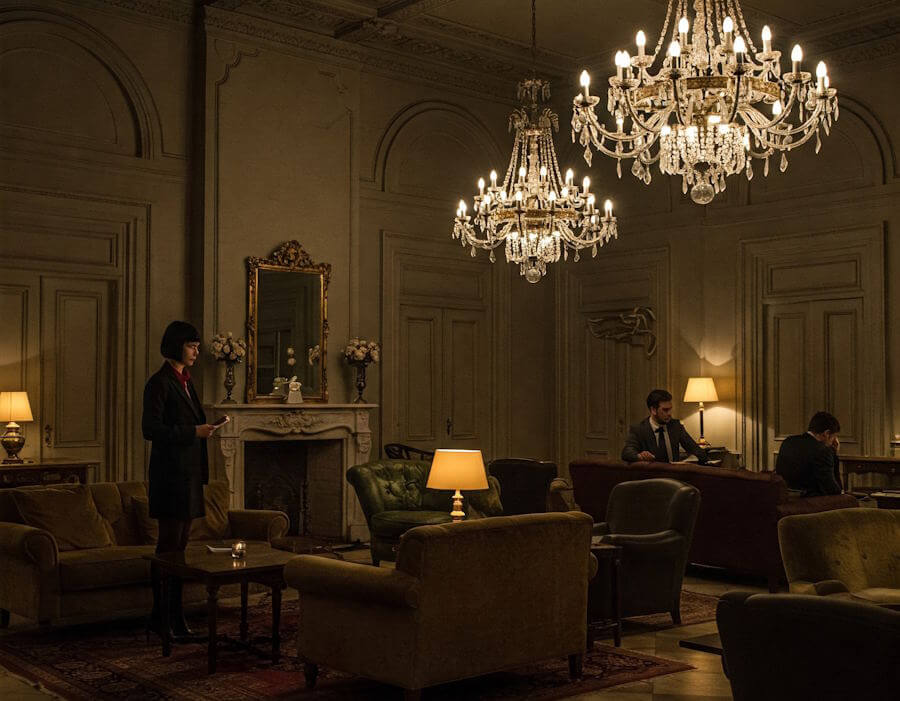Boutique hotels represent a distinct category within the hospitality industry, characterized by their unique design, personalized services, and cozy atmospheres. Unlike chain hotels, which often emphasize uniformity and standardization, boutique hotels are known for their individualism and distinct character. This allows them to offer a more tailored experience that aligns with the preferences and needs of their guests.
One of the primary attributes that set boutique hotels apart is their commitment to aesthetics and style. These establishments are often designed with a keen eye for detail and reflect the local culture, art, and history. This culturally immersive experience appeals to travelers seeking an authentic and memorable stay. As a result, boutique hotels often feature carefully curated décor, engaging themes, and an ambiance that cannot be replicated in larger chain properties.
Another hallmark of boutique accommodations is their focus on personalized service. Guests can expect an attentive and dedicated staff that goes beyond the norm to ensure their comfort and satisfaction. This can include customized welcome amenities, personalized recommendations for local attractions and restaurants, and an overall warmth that fosters a sense of belonging. Such personalized interactions create a memorable rapport that is seldom found in conventional chain hotels.
Boutique hotels typically cater to a niche market, attracting travelers who prioritize unique experiences and distinctive environments over standardized amenities. This focus on specialized offerings draws a diverse clientele, including leisure travelers, business professionals, and couples seeking romantic getaways. As a result, understanding the differences between boutique and chain hotels is paramount for modern travelers aiming to enhance their lodging experience and to seek accommodations that align with their individual preferences.
Unique and Personalized Experience
One of the most significant advantages of choosing a boutique hotel over a chain establishment is the unique and personalized experience it offers. Boutique hotels often prioritize individual guest experiences, tailoring their services in ways that larger hotel chains cannot match. This focus on personalization creates an inviting and memorable atmosphere, where guests feel valued and special throughout their stay.
Firstly, boutique hotels typically have smaller capacity, allowing staff to develop a more intimate relationship with their guests. This can manifest in various ways, such as remembering guest preferences, offering customized recommendations for local attractions, or even preparing personalized welcome gifts that reflect the guests’ tastes. The ability of boutique hotel staff to provide insights into the local culture and hidden gems adds a layer of authenticity to the experience, enriching the stay in a way that standardized chain hotels rarely achieve.
Furthermore, many boutique hotels emphasize unique decor that is reflective of the local area or the hotel’s own individual story. This can involve art pieces from local artists, custom furnishings, or even themed rooms that tell a story. Such thoughtful touches not only enhance the aesthetic appeal but also create a sense of place that resonates with guests, making their stay more memorable. Rather than a cookie-cutter ambiance, the distinctive atmosphere of boutique hotels often leaves a lasting impression.
In addition to room decor, boutique hotels often curate their amenities to accommodate individual needs. For instance, some may provide bespoke toiletries sourced from local producers or partner with nearby businesses to offer exclusive experiences such as cooking classes or guided tours. All these elements contribute to a vacation that feels personally tailored rather than simply a product of a one-size-fits-all approach.
Distinctive Design and Aesthetics
Boutique hotels are renowned for their striking designs and aesthetics that consistently capture the imagination of travelers. Unlike chain hotels, which often adhere to a standardized look and feel, boutique accommodations embrace unique styles that embody the character of their locale. This individuality creates an inviting atmosphere that leaves a lasting impression on guests.
One of the most compelling aspects of boutique hotels is their incorporation of local art and historical architecture. Many of these establishments partner with local artists to showcase artwork that reflects the culture and history of the area. This not only supports the local arts community but also provides guests with a deeper connection to the setting. The interiors are often adorned with pieces that tell a story or capture the essence of the region, creating a rich and immersive experience.
Moreover, the architectural elements of boutique hotels frequently feature distinctions that tell a tale of the building’s history and significance. Whether it’s a repurposed warehouse that has been transformed into a modern living space or an antiquated mansion that has been lovingly restored, each boutique property has its narrative. In contrast, chain hotels typically prioritize functionality and efficiency, often leading to a cookie-cutter appearance that lacks character.
Themed interiors in boutique hotels are also a hallmark of their design philosophy. These accommodations often draw inspiration from various sources—be it local folklore, nature, or even global influences—to create a cohesive aesthetic that intrigues guests. Each room may display a different theme, inviting visitors to explore various facets of the hotel’s design. This focus on distinctiveness allows boutique hotels to cultivate an atmosphere of exclusivity and charm, ultimately providing a visual experience that encapsulates the spirit of their surroundings.
Location, Location, Location
Boutique hotels are often strategically placed in dynamic neighborhoods that provide a unique backdrop for guests. Unlike chain hotels that tend to be situated in mainstream tourist areas, boutique accommodations frequently embrace the charm of lesser-known locales. This ensures that guests have the opportunity to experience the city like a local, rather than just skimming the surface of popular attractions.
By choosing a boutique hotel, travelers can find themselves nestled in vibrant districts that boast eclectic dining options, independent shops, and cultural landmarks. These hotels are often located near artistic hubs or historic sites, allowing visitors to immerse themselves fully in the local atmosphere. Such prime locations invite guests to explore the underlying fabric of the community, leading to authentic encounters that are rarely found in the more commercialized parts of a city.
The proximity to cultural hotspots is one of the paramount advantages of boutique hotels. Guests can enjoy leisurely walks to art galleries, theaters, and live music venues that define the essence of the area. Moreover, staying in locations that are off the beaten path reduces the chance of falling prey to overcrowded tourist traps, allowing for a more serene and genuine experience. Boutique hotels encourage exploration beyond their doors, inspiring visitors to venture into local cafes and shops that share the city’s unique story.
This thoughtful placement of boutique hotels empowers travelers to engage with their surroundings intimately. Instead of being distanced from the city’s pulse, guests can connect with the local culture, cuisine, and customs, enriching their stay. Ultimately, the strategic locations of boutique accommodations pave the way for memorable experiences that transcend conventional tourism, providing an idyllic setting to discover hidden gems and engage with diverse communities.
Supporting Local Economies
Boutique hotels play a crucial role in fostering economic growth within their communities. Unlike large hotel chains that often rely on centralized suppliers and standardized services, boutique hotels tend to prioritize sourcing goods and services from local businesses. This commitment not only ensures that guests receive a more authentic experience, but it also reinforces the economic fabric of the local area by redistributing spending within the community.
When travelers opt for boutique accommodations, they significantly contribute to local economies. These hotels frequently partner with nearby artisans, farmers, and vendors to provide unique products, from locally crafted furniture and decor to gourmet meals featuring regional ingredients. This local sourcing not only enhances the guest experience but also supports livelihoods and sustains businesses that might otherwise struggle to compete with larger, corporate entities. Furthermore, when boutique hotel owners invest in their surrounding communities, they often foster relationships that lead to collaborations and creative exchanges, enriching the local cultural landscape.
The ripple effects of choosing a boutique hotel extend beyond mere economics. By patronizing these establishments, travelers encourage the preservation of local culture and heritage. Many boutique hotels incorporate designs and themes that reflect the historical and cultural significance of the area, offering guests a deeper understanding of the region they are visiting. This immersion in local culture benefits both visitors and residents, creating a mutual appreciation that helps sustain the community’s identity.
In light of these factors, it is clear that selecting a boutique hotel not only enhances the travel experience but also actively supports and invigorates local economies. This conscious choice fosters a symbiotic relationship between visitors and the communities they explore, paving the way for a tourism model that prioritizes sustainability and community engagement.
Intimate Atmosphere and Smaller Size
The choice between boutique hotels and chain accommodations often hinges on the unique atmosphere that boutique hotels provide. One of the most significant advantages of staying in a boutique hotel is the intimate setting that comes with their smaller size. Typically, boutique hotels have a limited number of guest rooms, which fosters a quieter and more relaxed environment. This size allows for a personalized experience that larger chain hotels, often operating on a much grander scale, simply cannot replicate.
The fewer guests present in boutique hotels contribute to a less noisy and more tranquil atmosphere. Unlike sprawling chain hotels, where high occupancy can lead to crowded public spaces and a constant flow of foot traffic, boutique accommodations prioritize creating a serene setting for their guests. This quiet ambiance enhances relaxation, making it easier for visitors to unwind after a day of exploring the local area or attending business meetings.
Moreover, the intimate atmosphere of boutique hotels also facilitates more personalized service. With a smaller staff-to-guest ratio, hotel personnel can pay closer attention to individual needs and preferences. Guests often find themselves receiving tailored recommendations for local dining options, attractions, and activities, ensuring their stay is both enjoyable and memorable. This level of service contrasts sharply with the often impersonal experiences found in larger chain hotels, where guests may feel like just another number in a vast system.
Ultimately, the intimate atmosphere and the smaller size of boutique hotels contribute to an experience that is welcoming and community-oriented. This intimate environment encourages connections, whether it’s with fellow guests or the attentive staff, further enriching the overall experience. Staying in a boutique hotel not only adds charm to a visit but also promotes a sense of belonging that can greatly enhance one’s travel experience.
Conclusion
In conclusion, choosing a boutique hotel over a traditional chain can significantly enhance one’s travel experience. The personalized service offered by boutique hotels often surpasses that of larger chain establishments, where guests may feel like just another number. Boutique hotels pride themselves on creating a welcoming atmosphere, where attentive staff cater to individual needs and preferences, facilitating an exceptional level of comfort and hospitality.
Another compelling reason to opt for boutique accommodations lies in their unique design and character. Each boutique hotel is typically crafted with distinct architecture and décor that reflect the local culture and ambiance. This provides travelers with an opportunity to immerse themselves in the city or region they are visiting, often making their stay more memorable as they engage with the local environment in a deeper way.
Moreover, the amenities and offerings available at boutique hotels can often be tailored to meet the desires of discerning travelers. Guests frequently enjoy curated experiences, such as locally-sourced meals or exclusive city tours, elevating their overall stay. Additionally, smaller boutique hotels tend to be located in vibrant neighborhoods, allowing guests to explore hidden gems that might be overlooked by those residing in hotel chains.
When considering where to stay during your travels, reflect on your personal preferences and travel goals. For those seeking a unique, intimate experience that fosters connections with both the hotel and the local community, boutique hotels represent a superb choice. Ultimately, embracing the adventure of staying in boutique hotels can lead to enriching experiences and lasting memories, making your journey truly remarkable.
FAQs About Boutique Hotels
Boutique hotels have gained significant popularity among travelers seeking unique and personalized experiences. However, potential guests often have questions regarding various aspects of these establishments. One of the most frequently asked questions is about pricing. Generally, the cost of staying in a boutique hotel can vary significantly based on factors such as location, amenities, and the type of experience offered. While some boutique hotels may be priced comparably to larger chains, others may command a premium due to their distinctive character and targeted services. It is advisable to research and compare prices across different platforms to find the best deal.
When it comes to booking tips, it is crucial to book directly through the hotel’s website if possible. Many boutique hotels offer exclusive promotions or benefits, such as complimentary breakfast or late check-out, for guests who book directly. Additionally, travelers can often discover hidden gems by checking social media platforms or travel blogs that focus on showcasing boutique properties. Signing up for newsletters can also provide insights into special offers or upcoming events.
Another common inquiry is about finding the best boutique hotel options. Travelers seeking a tailored experience should consider factors such as location, style, and services offered. Websites dedicated to boutique hotels, as well as review platforms, can assist in identifying establishments that align with personal preferences. It’s also beneficial to look for hotels that prioritize exceptional service and have strong ties to the local community, often enhancing the overall experience for guests.
Lastly, misconceptions surrounding boutique hotels often include the belief that they lack the same level of comfort or amenities as chain hotels. In reality, many boutique establishments provide a rich array of facilities while ensuring a unique ambiance that larger chains may not offer. Thus, these hotels often excel in creating a memorable and personalized stay.
Tips for Choosing the Right Boutique Hotel
Choosing the perfect boutique hotel can greatly enhance your travel experience, offering personalized service and unique atmospheres distinct from those found in chain hotels. To begin, consider what type of atmosphere you desire. Boutique hotels often reflect local culture and history, so selecting a hotel that resonates with your style can set the right tone for your trip. Look for hotels that feature distinctive architecture, curated decor, or themes that appeal to you.
Next, pay attention to the amenities that are most important to you. While boutique hotels may not always offer the extensive range of services typical of large chains, they often provide tailored experiences that can make for a memorable stay. Consider if you would prefer a hotel with in-house dining, spa services, or opportunities for local excursions. Additionally, check if there are special touches, such as complimentary breakfasts or personalized concierge services, that can enhance your visit.
Location is another crucial factor in your decision-making process. Opt for a boutique hotel situated in a neighborhood that aligns with your interests, whether that be vibrant nightlife, cultural attractions, or serene environments. Moreover, make sure you have easy access to public transport or major landmarks to facilitate your exploration of the area.
When conducting your research, take advantage of reputable review sites and travel forums to gather insights about the experiences of previous guests. Pay attention to feedback regarding customer service, cleanliness, and overall ambiance. This information can provide valuable perspective and help you make an informed decision. Remember to consider your personal preferences and priorities, as these will ultimately guide you in selecting the ideal boutique hotel for your next getaway.
Reader’s Experiences: Share Your Story
As travelers seek unique and memorable experiences, boutique hotels often stand out for their charm and personalized service. We invite you, our readers, to reflect on your personal encounters at boutique hotels and share your stories with us. Consider what made your stay distinctive compared to conventional chain hotels.
Did you stumble upon a boutique hotel with a captivating design or exceptional decor that captured your attention? Perhaps it was the warm welcome and attentive staff that made you feel at home, or maybe the unique amenities offered exclusively by a boutique establishment that enhanced your experience. Think about the little details—were there special local touches that added to your stay’s authenticity? These are the kinds of insights that make experiences at boutique hotels unforgettable.
Your story could be about a hidden gem you discovered during your travels, one that stood out due to its location or the extraordinary experiences it provided. Did a particular boutique hotel forge a lasting impression on you that prompted you to tell family and friends about it? Sharing your recommendations and anecdotes will not only cultivate a vibrant community of boutique hotel enthusiasts but also guide fellow travelers in their future lodging choices.
We encourage you to share your encounters with us, whether they are delightfully quirky or simply heartwarming. Your contributions will undoubtedly enrich our understanding of the allure of boutique hotels. By sharing your insights, you help shape a narrative that celebrates individuality and authenticity in hospitality. Join the conversation and encourage others to explore the uniqueness that boutique hotels offer. We look forward to reading your stories and learning about the experiences that have left a mark on your travels.




